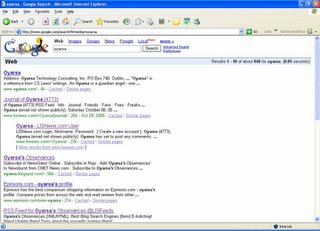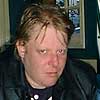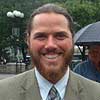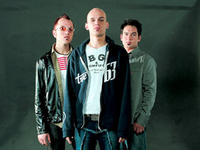From the October 3, 2005 issue: In the universities it's almost as high as the tuition.
by Harvey Mansfield
10/03/2005, Volume 011, Issue 03
URL
Restoring Free Speech and Liberty on Campus
by Donald Alexander Downs
Independent Institute/Cambridge, 295 pp., $28.99
SENSITIVITY HAS TAKEN OVER OUR society, and nowhere more securely than in our universities.
To see what has happened, consider this small fact. Half a century ago, a liberal Harvard psychologist, Gordon W. Allport, published a book, The Nature of Prejudice, that began the social science study of stereotypes. Though of course hostile to stereotypes, he allowed they might have a kernel of truth. For example, he said, fewer Jews are drunks than Irish.
A remark like that could not be made at a university today except in private to trusted friends. And if you made it, you would be testing your trust. Jews and Irish, to be sure, are not protected groups, but to speak so frankly even about them would betray a very troubling levity in your attitude toward groups that are protected.
Sensitivity is today's version of the soft despotism that Alexis de Tocqueville worried about in democracies, and it would not have surprised him that the worst of it would be found in the halls of the intellect. Only in American universities, some 300 of them, from 1987 to 1992, did the movement for sensitivity go so far as to enact semi-legal speech codes proscribing offensive speech. These codes provoked the ire of a few free speech heroes on the campuses and, more important, prompted them to mobilize opposition to the codes and to attempts by university administrators to enforce them.
One of these heroes, Donald Downs, a professor at the University of Wisconsin, has written an account of his own successful coup there, together with accounts of a comparable victory at Pennsylvania and failures at Berkeley and Columbia. He accompanies his narratives with reflections, which are those of an old-fashioned free speech liberal. At first a supporter of speech codes, Downs changed his mind when he saw them in operation. Readers get a chance to judge the virtues and defects of the free speech position in trying circumstances when many liberals abandoned it for sensitivity.
During most of the 20th century, Downs says, threats to free speech came from the right and from outside the universities. But in the late 1960s they began to come from the left, and from within. At that time, Herbert Marcuse set forth his notion of "repressive tolerance," an attack on the liberal free speech doctrine which claimed that, while pretending to tolerate free speech, liberals actually repressed it. This was because liberals frowned on radicals like Marcuse. Real dissent would have to challenge the whole of liberalism; in fact, the only true dissent is challenging liberalism. Conformist speech defending liberalism is worthless; in fact, so worthless that it can safely be repressed. No, safety demands that it be repressed, and in making a demand, safety is transformed into morality. Morality requires repressing liberalism. Downs calls this "progressive censorship," and says it is just as detrimental to free universities as traditional censorship from the right.
Thus, "repressive tolerance" has quite a punch in two words. By the late 1980s Marcuse's thinking had infused liberals and deflected many of them from liberalism into postmodernism, one feature of which is a soft therapeutic notion of sensitivity. Instead of repressing liberalism, let's make it sensitive. Between the late '60s and the late '80s feminism came on the scene and embraced sensitivity as the peaceable, womanly way to victory over liberalism.
Downs's first case is Columbia, which enacted a "sexual misconduct policy" in 2000 to assuage feminist protest there. Many more rape victims were being treated at Columbia's hospital than rapists convicted in the university judicial system. Columbia's solution was to make things easier for the accuser and harder for the accused. This policy related to conduct, and was not professedly a speech code.
At Berkeley, home of the Free Speech Movement of the late '60s, "progressive social censorship" was applied against opponents of affirmative action (outlawed in California in 1996 by Proposition 209). A series of incidents arising over cartoons in the student newspaper, law school admissions, and protests against visiting speakers created an atmosphere of intimidation, even though it was not formalized in a speech code.
At both universities, intimidation was directed at conservatives. As one Columbia student said, "You can't be conservative. If you are, you automatically get notoriety and infamy." Conservatives were not altogether silenced, but they were made to suffer when they spoke up.
At Penn, a harassment code initiated by President Sheldon Hackney was passed in 1987, allegedly covering conduct, not speech. But harassment included stigmatizing speech, as Eden Jacobowitz, a Penn student, found out. In a famous incident in 1993, he shouted "water buffalo" at a group of black sorority women who were disturbing his study, and was then called to account and punished by the university. The conservative Penn historian Alan Kors took up Jacobowitz's cause and succeeded, after much travail, in exonerating him and getting the code abolished.
In the chapter on Wisconsin, Downs tells the story of his own exploits. In 1989, President Donna Shalala (like Hackney, later a figure in the Clinton administration) established codes for students and faculty that explicitly punished demeaning speech, later called "hate speech." The student code was abandoned two years later, but the faculty code remained until Downs, a First Amendment liberal, organized its abolition in the faculty senate in 2001. His book tells a harrowing tale featuring a few heroes like himself and Kors (plus William Van Alstyne of Duke, Nat Hentoff of the Village Voice, Dorothy Rabinowitz of the Wall Street Journal, and civil rights lawyer Harvey Silverglate), a few villains such as Hackney and Shalala, their politically correct administrators, and many easily confused or intimidated faculty liberals.
Downs ends on a note of optimism, urging others to learn from what he and his friends accomplished. One can imagine his dismay at the recent spectacle at Harvard this spring, when progressive social censorship was enforced on President Lawrence Summers by the Harvard faculty. Not only was Summers's speech on why more women do not enter science rejected in substance, but his mere choice of topic and call for inquiry into the matter were declared insensitive. In a secret ballot, he was branded as lacking the confidence of Harvard's bold faculty. Summers, with his apologies for raising the issue, did not, to say the least, react as did Donald Downs. Summers is no Hackney and no Shalala; but still, he was overcome by the forces of sensitivity. Perhaps Downs would not be so hopeful if he were writing with this incident in view.
Let us honor the conscience of free speech liberalism and the passion to defend free speech that it inspires. But let's also take a look at two problems--balance and truth--arising as liberalism faces the demand for sensitivity.
Downs ends his book remarking that maintaining free speech in universities is a "delicate balancing act," but he also says that its defenders need to have the "requisite passion." The trouble is that passion for free speech cools off in the act of balancing. Passionate defense of free speech is attracted to extremes that test the bounds of the First Amendment and require a valiant effort by the defender to tolerate speech he loathes, as in the promise never quite kept by Voltaire to defend to the death the right of a speaker he disapproves of. This is drama rather than balance. Downs himself had written a book in 1985 on the Nazis in Skokie, concluding that, on balance, racial vilification does not deserve First Amendment protection. He changed his mind, he says, because he came to doubt the ability of university administrators to strike a fair balance.
This was a reasonable doubt of administrators infused with the idea of enforcing sensitivity. But the speech codes that gave the alarm to Downs were not the worst danger to free speech in the universities, nor are they today. Those codes prohibited racial slurs and unwelcome lewd overtures--unpleasant, to be sure, to blacks and women, but hardly posing grave risks. They were interpreted, however, in a spirit of political correctness so as to produce a numbing homogeneity of opinion at our universities, and that spirit has proved very harmful. The idea of sensitivity behind the speech codes also led to political correctness, because it was necessary to decide to whom to be sensitive. Being sensitive to blacks and women gave them the right to be offended when they pleased and to talk back offensively to their tormentors. They did not have to be sensitive except to the insensitivity they were subject to, and they were encouraged to react with indignation whenever they felt they were put upon.
Thus, the notion of sensitivity led to less toleration rather than more. Those not tolerated were, of course, conservatives. The victims Downs tells of were not conservatives (they were mostly naive and nonpolitical) and some of his faculty and student heroes were conservatives. Conservatives were silenced not so much by speech codes as by not being hired for the faculty and not being invited to give talks or lectures on campus. Some conservative speakers were intimidated by protests; but for the most part, conservatives were simply not there and not invited. First Amendment liberals prefer the cause of the embattled and give little thought to the need for a balance of reasonable or respectable opinion in universities. To exaggerate: They will defend you only if they hate you, or if you are being persecuted. The near-total exclusion of conservatives from the faculties of America's elite universities does not alarm them. The fact that partisan debate outside the universities is freer and livelier than within may be deplorable, but it does not strike them as a free speech issue. They take for granted the willingness of citizens to speak up. They become indignant at the suppression of speech, but worry much less about speech that it never occurs to anyone to express.
A society of free speech needs lively exchange between the parties and not just loud voices from its eccentric fringe--and this is true, too, for universities. For lively exchange you need balance, as it is easy for a dominant majority to be unruffled by dissent when it is only from a token few. One could seek balance by declaring partisan opinion to be academically irrelevant, as when President Robert Sproul at Berkeley in the 1930s (Downs notes) banned the use of university buildings for partisan purposes. Many social scientists in universities follow a similar logic when they adopt the fact/value distinction: "My science is over here and my values are over there; there's no connection!" The fact that most all of us are liberals, and hardly any conservative, is therefore irrelevant. Science is what matters, and that is impartial.
This attitude coexists at universities today with the opposite, postmodern view that science is only a mask of impartiality to conceal the partisan exercise of power. True impartiality being impossible, in this view, we should embrace partiality and politicize the university. Either way, whether from positivism or postmodernism, conservatives lose out. They are not necessary to be heard, and if they are heard, they do harm to progressive causes.
Mention of progress brings up the second problem for free speech liberals, the problem of truth. Liberals stand for progress and, for self-protection, sometimes call themselves progressives. They also stand for diversity and speak of it constantly. Yet progress is hostile to diversity, especially to the diversity that conservatives represent. Progress is progress in truth, in the overcoming of prejudice such as racism, sexism, and homophobia. By identifying and refuting prejudice, progress establishes the reign of truth and narrows the range of acceptable opinions. What, then, is to be done about conservatives who hold these prejudices? Today, conservatives do not, or no longer, hold to racial prejudice, and anyone who does has been banished from responsible discussion. But is it the same for sexism and homophobia? Has debate on these matters been foreclosed, and does it deserve to be?
If liberals agree that one can still believe in sex differences and in the superiority of heterosexual life, they then consent to diversity and admit that conservatism in these respects is respectable. If they do, however, they set limits to progress in truth, or in the spread of truth. They justify a society balanced between liberals and conservatives, the party of progress and the party of order, as John Stuart Mill called them. But this seems to be a society of truth and untruth, permanently divided, which prevents the triumph of truth, of liberalism.
How can liberals accept that? Or respect it? Mill says that truth will become dead dogma if it is not challenged by opposing views, which is his reason for tolerating conservatives. But the problem is that if truth is systematically challenged, it will not be paramount. Diversity will replace truth.
This problem is more acute in universities as opposed to society in general, because universities are dedicated to the pursuit of truth. Downs notes that the difference between free speech and academic freedom is that the latter, unlike the former, relates to truth. A society can have free speech, pace the ACLU, if it does not challenge its own basic presuppositions, like those in the Declaration of Independence. But a university must, in pursuit of truth, hold those presuppositions open to inquiry. To carry out such inquiry, a university would seem to have greater need of diversity than a society. A university would not want to foreclose questions that a society might consider settled.
Conservatism is therefore closer to the mission of the university than liberalism is. Liberals, insofar as they are progressives, believe that it is possible to eliminate prejudice from society. When prejudice is gone, truth prevails, and there is no need to reconsider the errors of the past. Progress is irrevocable, and inquiry shrinks to whatever questions remain unsettled. Conservatives, believing that it is not possible to eliminate prejudice, are more tolerant than liberals; they expect society to be, and remain, a mixture of truth and untruth. Conservatives may be prejudiced themselves, or they may be just tolerant of prejudice in others. If society will always be a mixture of truth and untruth, it may be necessary to see what sort of untruth is politically compatible with truth, and what sort is not.
This is the problem we face in judging the civil rights of terrorists, a problem Downs alludes to but does not discuss. We surely do not need speech codes to hobble conservatives--they should be listened to!--but we may well need measures to suppress the preaching of Islamic terrorists. There we have true hate speech composed of hateful ideas, and as a conservative once said, ideas have consequences.
But Downs points out that the idea of sensitivity erodes the difference between speaking and doing. The function of speech comes to be preserving the self-esteem of those spoken to, rather than addressing them; and sexual harassment, a certain behavior, comes to include words found offensive.
Harvey Mansfield is professor of government at Harvard.































